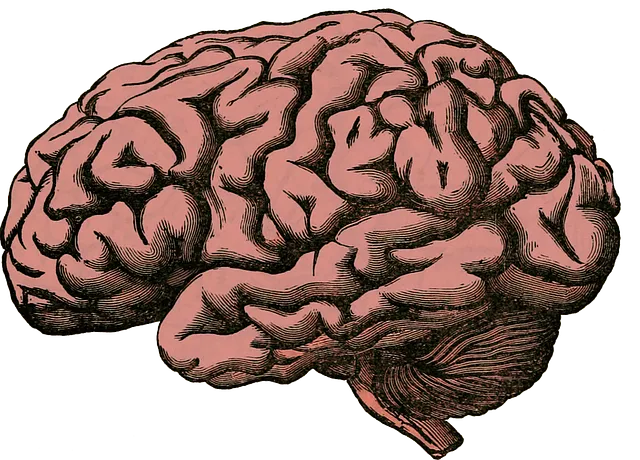The media significantly shapes public perception of mental health, with positive impacts through empathy and help-seeking encouragement, or negative effects by perpetuating stereotypes and stigma. Boulder Kaiser Permanente leads in addressing this issue through proactive initiatives. They provide mental health education, cultural competency training, and involve individuals with lived experiences to ensure accurate, compassionate media portrayals of mental illness. Their community engagement strategies dispel myths and promote understanding, revolutionizing mental health representation in media, similar to their comprehensive services at Boulder Kaiser Permanente for anxiety relief and emotional well-being.
In today’s media landscape, the representation of mental illness plays a pivotal role in shaping public perception. This article explores strategies to challenge negative stereotypes and misconceptions prevalent in popular culture. We delve into the impact of media portrayal on mental health stigma and highlight innovative approaches, such as Boulder Kaiser Permanente’s initiatives. By examining current practices, identifying harmful tropes, and emphasizing community engagement, we aim to foster more accurate and empathetic representations of mental illness in the media.
- Understanding the Impact of Media Portrayal on Mental Health Perception
- The Current State: How Boulder Kaiser Permanente Addresses Mental Illness in Media
- Identifying Stereotypes and Misconceptions in Popular Culture
- Strategies for Promoting Accurate and Empathic Mental Illness Representation
- Community Engagement: Collaborating to Shape a More Understanding Media Narrative
Understanding the Impact of Media Portrayal on Mental Health Perception

The media plays a significant role in shaping public perception about mental health, often influencing how individuals understand and respond to various conditions. Positive and accurate representation can foster empathy, reduce stigma, and encourage those struggling with their mental well-being to seek help. Conversely, negative or stereotypical portrayals can perpetuate misinformed views, leading to further marginalization of already vulnerable communities. For instance, media narratives that depict mental illness as a personal weakness or a result of poor life choices may discourage individuals from openly discussing their experiences and seeking professional support, such as those offered by Boulder Kaiser Permanente mental health services.
Understanding the impact of these representations is crucial for promoting self-esteem improvement and trauma support services. Mental health professionals can leverage their expertise in risk management planning to ensure responsible media engagement, thereby contributing to a more nuanced and compassionate public discourse. This approach not only helps in accurately reflecting the diverse nature of mental illness but also encourages society to adopt inclusive practices that benefit overall mental health outcomes.
The Current State: How Boulder Kaiser Permanente Addresses Mental Illness in Media

Boulder Kaiser Permanente has taken a proactive approach to addressing mental illness representation in media. In recognition of the significant impact that media portrayal can have on public perception and understanding, the healthcare provider has implemented several initiatives aimed at promoting accurate and sensitive depiction of mental health issues. Through its mental health education programs design, Boulder Kaiser Permanente fosters emotional intelligence among staff and community members, enabling them to recognize and support individuals struggling with mental illness more effectively.
Additionally, the organization emphasizes cultural competency training for healthcare providers. This ensures that care remains inclusive and accessible to a diverse range of patients, reflecting the rich tapestry of experiences and perspectives within the community. By integrating these strategies, Boulder Kaiser Permanente strives to create a more supportive and understanding environment, both within its walls and in the broader media landscape, ultimately challenging stigmatization and promoting better mental health outcomes for all.
Identifying Stereotypes and Misconceptions in Popular Culture

In popular culture, mental illness is often reduced to simplistic stereotypes, contributing to widespread misconceptions. Media representations frequently depict individuals with mental health challenges as either intensely dangerous or pitifully helpless, failing to capture the nuanced reality of lived experiences. These portrayals can have profound impacts on society’s understanding and attitude towards mental health issues, leading to stigma and isolation for those who struggle. For instance, movies and TV shows may portray schizophrenia as solely disruptive and violent, neglecting to show the subtle symptoms or the potential for recovery through treatment and support. Similarly, depression is sometimes portrayed as a fleeting emotional state rather than a complex medical condition that requires professional care and personal resilience.
Boulder Kaiser Permanente mental health experts emphasize the importance of challenging these stereotypes to foster a more compassionate society. They advocate for accurate representations in media that reflect the diverse experiences of individuals with mental illness. This includes promoting stories of inner strength development, where characters navigate challenges with resilience and seek help when needed. By incorporating compassion cultivation practices into storytelling, media can humanize mental health struggles, encourage empathy, and support risk management planning for professionals interacting with audiences. Shifting these narratives can contribute to a more supportive environment, enabling better access to care and understanding for those facing mental health issues.
Strategies for Promoting Accurate and Empathic Mental Illness Representation

To promote accurate and empathic mental illness representation in media, it’s crucial to involve individuals with lived experiences as advisors or consultants during production. This ensures stories are told from authentic perspectives, avoiding stereotypes often seen in mainstream media. Collaborating with mental health professionals, such as those at Boulder Kaiser Permanente, can also provide valuable insights into the nuances of various conditions, enhancing realism and depth in portrayals.
Additionally, focusing on characters’ emotional intelligence and emotional regulation strategies rather than solely emphasizing illness can foster a more nuanced understanding. By showcasing individuals successfully managing their symptoms and living fulfilling lives, media can offer hope and inspire viewers experiencing similar challenges to seek support. This shift towards positive representation can significantly contribute to reducing stigma and promoting empathy for mental health struggles, ultimately improving access to care like that available at Boulder Kaiser Permanente for those seeking anxiety relief or other forms of emotional well-being.
Community Engagement: Collaborating to Shape a More Understanding Media Narrative

In addressing mental illness representation in media, community engagement plays a pivotal role in shaping more nuanced and accurate narratives. By fostering open dialogues between healthcare providers, media professionals, and the public, we can dispel myths and promote understanding. Boulder Kaiser Permanente mental health initiatives have emphasized collaborative efforts to ensure diverse voices are included in media discussions. This includes engaging with communities to learn about their unique perspectives and experiences related to mental health, thereby enriching media content with real-world insights.
Effective communication strategies, social skills training, and cultural sensitivity in mental healthcare practice are integral components of this engagement. Through these initiatives, we aim to empower individuals with accurate information and foster a supportive environment where everyone feels comfortable seeking help. By collaborating closely with communities, Boulder Kaiser Permanente is revolutionizing media representation of mental health, ensuring that stories told reflect the diverse realities of those affected.
The representation of mental illness in media has a profound impact on public perception and understanding. By examining current practices, such as those employed by Boulder Kaiser Permanente, we can identify harmful stereotypes and misconceptions prevalent in popular culture. Through collaborative community engagement and the implementation of empathetic strategies, we can foster more accurate portrayals that promote mental health awareness and reduce stigma. This collective effort is crucial in shaping a media narrative that reflects the diversity and complexity of mental health experiences.

